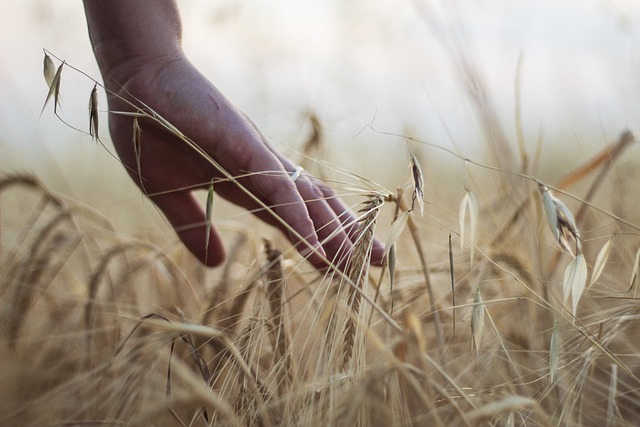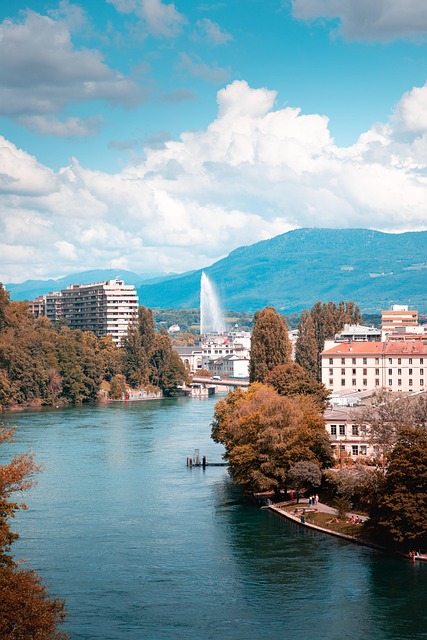Junction City's cultural vibrancy is intrinsically tied to its strong agricultural foundation, which has been a cornerstone for generations. Historically reliant on crops like corn, wheat, and soybeans, modern farming practices have evolved through technological advancements and global markets, with farmers adopting innovative techniques. Today, local farmers' markets and Community-Supported Agriculture (CSA) programs thrive, reinforcing the city's deep bond with its agricultural heritage. Junction City agriculture continues to flourish, showcasing resilience, resourcefulness, and cultural continuity while enriching local gastronomy, fostering environmental stewardship, and strengthening community identity.
“Junction City, a vibrant community with deep agricultural roots, has experienced a remarkable cultural evolution. This article explores the intricate relationship between its farming heritage and the diverse, dynamic culture that has emerged. From traditional agricultural practices to the thriving multicultural fabric of the city, we delve into how Junction City’s past shapes its present. Discover the fascinating journey of this agricultural hub and its ability to embrace change while maintaining a strong connection to its roots.”
- The Agricultural Foundation of Junction City's Cultural Evolution
- Adapting Traditions: How Farming Practices Have Shaped the Community
- Embracing Diversity: Junction City's Cultural Mosaic and its Impact on Agriculture
The Agricultural Foundation of Junction City's Cultural Evolution

Junction City’s cultural evolution is deeply rooted in its agricultural foundation, a cornerstone that has shaped the community for generations. The city’s landscape, dotted with sprawling farms and lush rural scenery, reflects a heritage steeped in the hard work and resilience of its farmers. Historically, Junction City’s economy revolved around agriculture, with crops like corn, wheat, and soybeans becoming staples. This agrarian base not only fed the local population but also fostered a strong sense of community among those who called this place home.
Over time, as technology advanced and global markets expanded, Junction City’s agricultural sector evolved. Farmers embraced innovative techniques, mechanization, and modern farming practices to enhance productivity. This adaptation ensured that the city remained connected to its roots while embracing change. Today, Junction City’s agriculture continues to thrive, with local farmers’ markets and community-supported agriculture (CSA) programs bringing fresh produce directly to residents, reinforcing the deep bond between the city and its agricultural heritage.
Adapting Traditions: How Farming Practices Have Shaped the Community

In Junction City, the cultural evolution is deeply intertwined with its agricultural heritage. The city’s farming practices have not only shaped the local economy but also left an indelible mark on community traditions and social structures. Over time, farming has adapted to meet changing environmental needs and market demands, reflecting a dynamic interplay between tradition and innovation. For instance, the adoption of modern farming techniques, such as precision agriculture and sustainable practices, has not replaced longstanding agricultural customs but rather integrated them, ensuring cultural continuity while enhancing productivity.
The adaptability of Junction City’s agriculture mirrors the resilience and resourcefulness of its residents. Traditional farming methods, passed down through generations, still play a significant role in shaping social bonds and community identity. These practices foster a sense of place and belonging, as families and neighbors gather to work the land. In turn, the community’s strong agricultural foundation has encouraged the development of local food movements, farmers’ markets, and community-supported agriculture initiatives, further enriching the cultural landscape of Junction City and promoting a deeper connection between locals and their land.
Embracing Diversity: Junction City's Cultural Mosaic and its Impact on Agriculture

Junction City has evolved into a vibrant cultural hub, characterized by its diverse population and rich tapestry of traditions. This city’s agricultural roots run deep, but over time, its cultural landscape has expanded, embracing various ethnicities and heritages. The result is a unique blend of customs, cuisines, and artistic expressions that enriches the local experience.
The diversity in Junction City agriculture is a direct reflection of its multicultural population. Farmers and producers from different backgrounds have contributed to the region’s culinary delights, introducing innovative farming techniques and sustainable practices. This cultural mosaic has not only enhanced the city’s gastronomic scene but also fostered a stronger connection to the land and promoted environmental stewardship among its residents.






